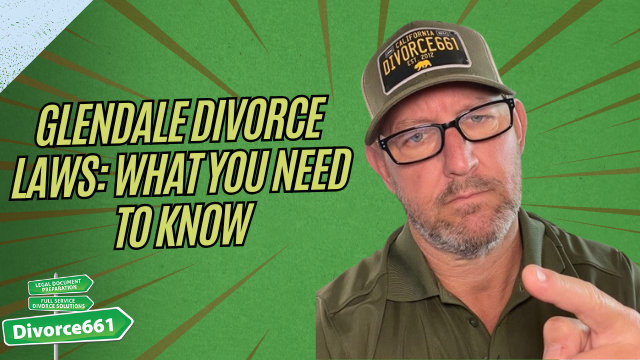Glendale Divorce Laws: What You Need to Know
How Glendale divorces are handled
If you live in Glendale and are considering divorce, your case is handled through the Los Angeles County Superior Court. That matters because most filings are electronic. Expect e‑filing to be the standard for petitions, responses, and many supporting documents. Electronic filing streamlines timelines but also means deadlines and document formats must be followed precisely.
California is a no-fault divorce state
California law does not require proof of wrongdoing to end a marriage. Instead, a spouse can state that the marriage has irretrievably broken down for reasons often called “irreconcilable differences.” No-fault divorce removes the need to prove fault, so the focus shifts to practical issues like property, support, and parenting arrangements.
Understanding community property
One of the most important concepts in California divorces is community property. In simple terms:
- Anything acquired by either spouse during the marriage is generally community property and is divided 50/50 at divorce.
- Property owned before marriage, inheritances, and gifts to one spouse are typically treated as separate property, unless they were commingled with community assets.
- Tracing and documentation matter a lot. If funds or assets were mixed, you may need proof to establish whether something is separate or community property.
“Anything you or your spouse acquired during the marriage is considered community property and is generally divided 50/50.”
Even when the law presumes a 50/50 split, reimbursement claims, business valuations, pensions, and tax consequences can complicate the final distribution. Full financial disclosure by both parties makes the process smoother and fairer.
Spousal support, child custody, and child support basics
These three topics are often the most emotional and important parts of a divorce:
Spousal support
Spousal support (alimony) can be awarded based on factors like the length of the marriage, each spouse’s earning capacity, and the standard of living established during the marriage. Support can be temporary (while the case is pending) and/or longer term after judgment depending on the circumstances.
Child custody and parenting time
Custody decisions are made based on the child’s best interest. Courts encourage parenting plans that promote frequent and continuing contact with both parents when appropriate. Parenting time is a primary factor for courts when setting custody arrangements.
Child support
Child support is calculated using California’s guideline formula that factors in both parents’ incomes, tax filing status, and the percentage of time each parent spends with the children. The goal is to ensure the children’s financial needs are met consistently after separation.
How amicable divorces can avoid court
An uncontested divorce where both spouses agree on property division, support, and parenting can often be resolved without court appearances. When both parties are cooperative, you can:
- Draft a written marital settlement agreement covering all issues
- File the necessary forms electronically with the court
- Request a judgment based on the terms of your agreement
When done correctly, an amicable case can be finalized quickly—sometimes in just a few weeks—without hearings or trial. Using a structured process and accurate paperwork helps the court approve the agreement expeditiously.
Practical checklist to get started
- Gather documentation: marriage certificate, tax returns, pay stubs, bank and retirement statements, mortgage and loan documents.
- Make a list of assets and debts, and note when and how they were acquired.
- Decide on temporary arrangements for housing, expenses, and parenting time while the case is pending.
- Exchange full financial disclosures with your spouse to avoid surprises later.
- Consider mediation, collaborative divorce, or flat-fee document services to keep costs predictable.
- Understand tax and retirement consequences before signing any agreement.
Tips to avoid costly mistakes
- Do not hide assets or income. Full disclosure is legally required and failure to disclose can result in reopening the case later.
- Get professional valuations for businesses, pensions, or real estate when needed.
- Understand that a signed agreement becomes a court order once entered as a judgment, so be sure you know the long-term effects.
- Use clear language in settlement documents to avoid ambiguity about who gets what and when.
If you want the process handled for you
If you live in Glendale and prefer a guided, efficient process, there are flat-fee, remote services that handle the paperwork, prepare settlements, and file electronically with the Los Angeles County Superior Court. These services can help couples finalize an uncontested divorce quickly while ensuring compliance with California law.
Starting a divorce the right way means knowing how California’s no-fault rules, community property principles, and support guidelines affect your outcome. Thoughtful preparation and accurate paperwork often make the difference between a quick, stress-free resolution and a lengthy, expensive court battle.
If you want help getting started, look for services that offer a free consultation and handle electronic filings in Los Angeles County.

